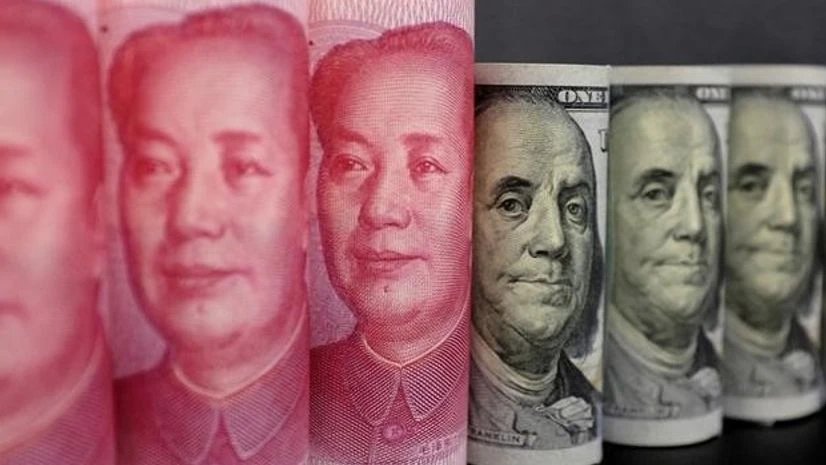Asian currencies were firm on Thursday after the minutes of the US Federal Reserve's last meeting showed policymakers favouring a gradual approach to interest rate hikes, with the yuan hitting two-month highs on state-driven dollar selling after Moody's downgraded China's debt ratings.
The yuan rose about 0.2 per cent to its strongest level since end-March after Chinese state-owned banks sold dollars in the onshore foreign exchange market, five traders said, in what was seen as a show of strength by authorities.
The yuan had seen minor weakness in the previous session after Moody's Investors Services unexpectedly downgraded China's long-term local and foreign currency issuer ratings, citing expectations that China's financial strength would dwindle as growth slowed and borrowing increased.
Other Asian currencies drew support from the minutes of the US Fed's May meeting showing policymakers agreeing to hold off from raising interest rates until it was clear a recent US economic slowdown was temporary, though most said a hike was coming soon.
The minutes also showed that policymakers favoured a gradual reduction in the Fed's massive balance sheet.
Also Read
The view on short-term interest rates, which the minutes said was "generally" shared by the nine officials who have a vote on policy this year, casts some doubt on Wall Street bets for a hike at the Fed policy meeting over June 13 to June 14.
The dollar went on the back foot as a result, while US Treasury yields fell fearing slow stimulus removal.
"EM FX in general floated higher in reaction to a weakened dollar overnight and this should portend a heavier tone for USD-Asia intra-day," OCBC Bank currency economist Emmanuel Ng said in a note.
Ng said that net portfolio inflows supported of a range of Asian currencies, including the won, the Taiwan dollar, the Indian rupee and Thai baht.
Indonesian financial markets were closed for a public holiday.
South Korean won and Taiwan dollar
The won got a major lift after the FOMC minutes -rising 0.8 percent against the dollar.
South Korean stocks gained for a fifth session, clocking record highs helped by upbeat comments from the central bank over local economic growth and further support from foreign buying.
Earlier, the Bank of Korea stood pat on its benchmark rate for an 11th straight month in its first policy review since President Moon Jae-in's inauguration.
The Taiwanese currency and stocks benefited from foreign buying, with the Taiwan dollar ending two days of losses while the benchmark stock index rose for a fourth session, adding 0.6 percent.
Singapore dollar
The Singapore dollar posted small gains after government data showed Singapore's economy contracted less than initially estimated in the first quarter on solid growth in manufacturing.
The Ministry of Trade and Industry said it expected the economy to grow more than 2 percent this year on improving overseas demand, but warned of risks to the outlook from tightening financial conditions in China.
Singapore has been among a number of export-reliant economies in Asia to benefit from a general rise in global demand from late last year, enjoying strong sales of its tech products.

)
